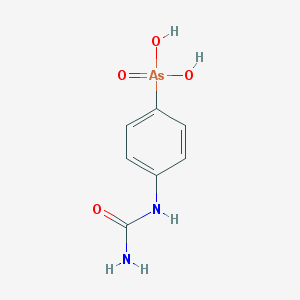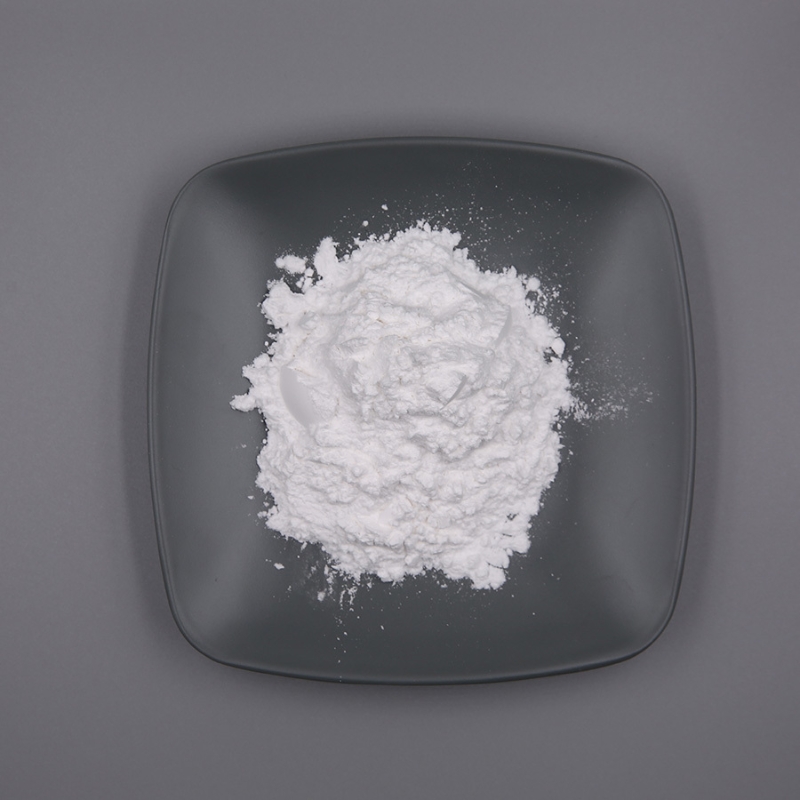Organic Chemistry
- • Amides (2600)
- • Alcohols, Phenols, Phenol Alcohols (305)
- • Nitrogen Compounds (248)
- • Nitrile Compound (83)
- • Hydrazine or Hydroxylamine Derivatives (203)
- • Quinones (38)
- • Ethers and Derivatives (182)
- • Aldehydes (108)
- • Carboxylic Acids and Derivatives (754)
- • Hydrocarbons and Derivatives (2305)
- • Ketones (71)
- • Inorganic Acid Esters (169)
- • Heterocyclic Ring (332)
- • Organometallic Compounds (958)
- • Organosulfur Compounds (69)
- • Phosphines (725)
- • Organometalate (283)
- • Organic Fluorine Compound (2103)
- • Triazenes (18)
- • Semicarbazides (33)
- • Organoselenium Compounds (28)
- • Nitro Compounds (94)
- • Nitrates (15)
- • Lactones (240)
- • Imines (24)
- • Free Radicals (46)
- • Dioxins and Dioxin-like Compounds (31)
- • Cyanates (31)
- • Coordination Complexes (3059)
- • Boron Compounds (84)
- • Azides (66)
- • Arsenicals (56)
Related News
Arsenicals
Calcium arsenate
(7778-44-1)-
![CALCIUM ARSENATE buy CALCIUM ARSENATE]()
Industrial Grade / 99%
-
![Calcium arsenate buy Calcium arsenate]()
-
![CALCIUM ARSENATE buy CALCIUM ARSENATE]()
-
![Calcium arsenate buy Calcium arsenate]()
Industrial Grade / 99%
Request for quotation , get quotes from more suppliers.
10,10′-Oxybisphenoxarsine
(58-36-6)-
- / 99.00%
-
- / 99%
-
- / 99.0%
$35-40/MT FOB
-
![10,10-Oxybisphenoxarsine buy 10,10-Oxybisphenoxarsine]()
Industrial Grade / 99%
Request for quotation , get quotes from more suppliers.
Arsenic acid (H3AsO4)
(7778-39-4)-
![Arsenic acid buy Arsenic acid]()
-
![Arsenic(VI) acid buy Arsenic(VI) acid]()
-
![Arsenic acid buy Arsenic acid]()
Industrial Grade / 99%
-
![Arsenic acid buy Arsenic acid]()
Different Grade / 99.9%
$0.1/KG EXW
Request for quotation , get quotes from more suppliers.
-
![CARBARSONE buy CARBARSONE]()
Industrial Grade / 99.0%
-
![CARBARSONE buy CARBARSONE]()
-
![CARBARSONE buy CARBARSONE]()
Industrial Grade / 99%
-
![[4-(carbamoylamino)phenyl]arsonic acid buy [4-(carbamoylamino)phenyl]arsonic acid]()
Request for quotation , get quotes from more suppliers.
Arsonic acid, methyl-, iron(3+) salt (3:2)
(6585-53-1)-
![MAF buy MAF]()
Industrial Grade / 99%
-
![iron,iron(3+),methyl-dioxido-oxo-λ<sup>5</sup>-arsane buy iron,iron(3+),methyl-dioxido-oxo-λ<sup>5</sup>-arsane]()
-
-
Request for quotation , get quotes from more suppliers.
Sodium arsenate (Na2HAsO4)
(7778-43-0)-
![Sodium arsenate buy Sodium arsenate]()
-
![SODIUM ARSENATE buy SODIUM ARSENATE]()
-
![SODIUM ARSENATE buy SODIUM ARSENATE]()
Industrial Grade / 99%
-
![Sodium arsenate buy Sodium arsenate]()
Different Grade / 99.9%
$0.1/KG EXW
Request for quotation , get quotes from more suppliers.
Sulfoxylic acid, mono[[[5-[(3-amino-4-hydroxyphenyl)diarsenyl]-2-hydroxyphenyl]amino]methyl] ester, sodium salt (1:1)
(457-60-3)-
![Neoarsphenamine buy Neoarsphenamine]()
Industrial Grade / 99%
$0.2/KG EXW
-
![neoarsphenamine buy neoarsphenamine]()
-
![Neoarsphenamine buy Neoarsphenamine]()
-
![Neoarsphenamine buy Neoarsphenamine]()
Industrial Grade / 99%
Request for quotation , get quotes from more suppliers.
-
Industrial Grade / 99%
-
![Sodium 4-Aminophenylarsonate buy Sodium 4-Aminophenylarsonate]()
Industrial Grade / 99.0%
-
![4-aminophenylarsonic acid sodium salt buy 4-aminophenylarsonic acid sodium salt]()
-
![Sodium 4-Aminophenylarsonate buy Sodium 4-Aminophenylarsonate]()
Request for quotation , get quotes from more suppliers.
-
-
Pharmacy Grade / -
-
Pharmacy Grade / 99%
-
![Melarsomine buy Melarsomine]()
Industrial Grade / 99.0%
Request for quotation , get quotes from more suppliers.
-
-
![SODIUM ARSENATE, HEPTAHYDRATE buy SODIUM ARSENATE, HEPTAHYDRATE]()
Industrial Grade / 99.0%
-
![SODIUM ARSENATE, HEPTAHYDRATE buy SODIUM ARSENATE, HEPTAHYDRATE]()
-
![SODIUM ARSENATE, HEPTAHYDRATE buy SODIUM ARSENATE, HEPTAHYDRATE]()
Industrial Grade / 99%
Request for quotation , get quotes from more suppliers.































